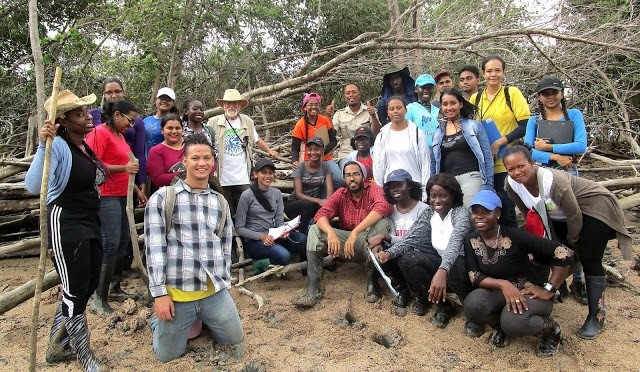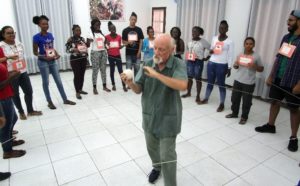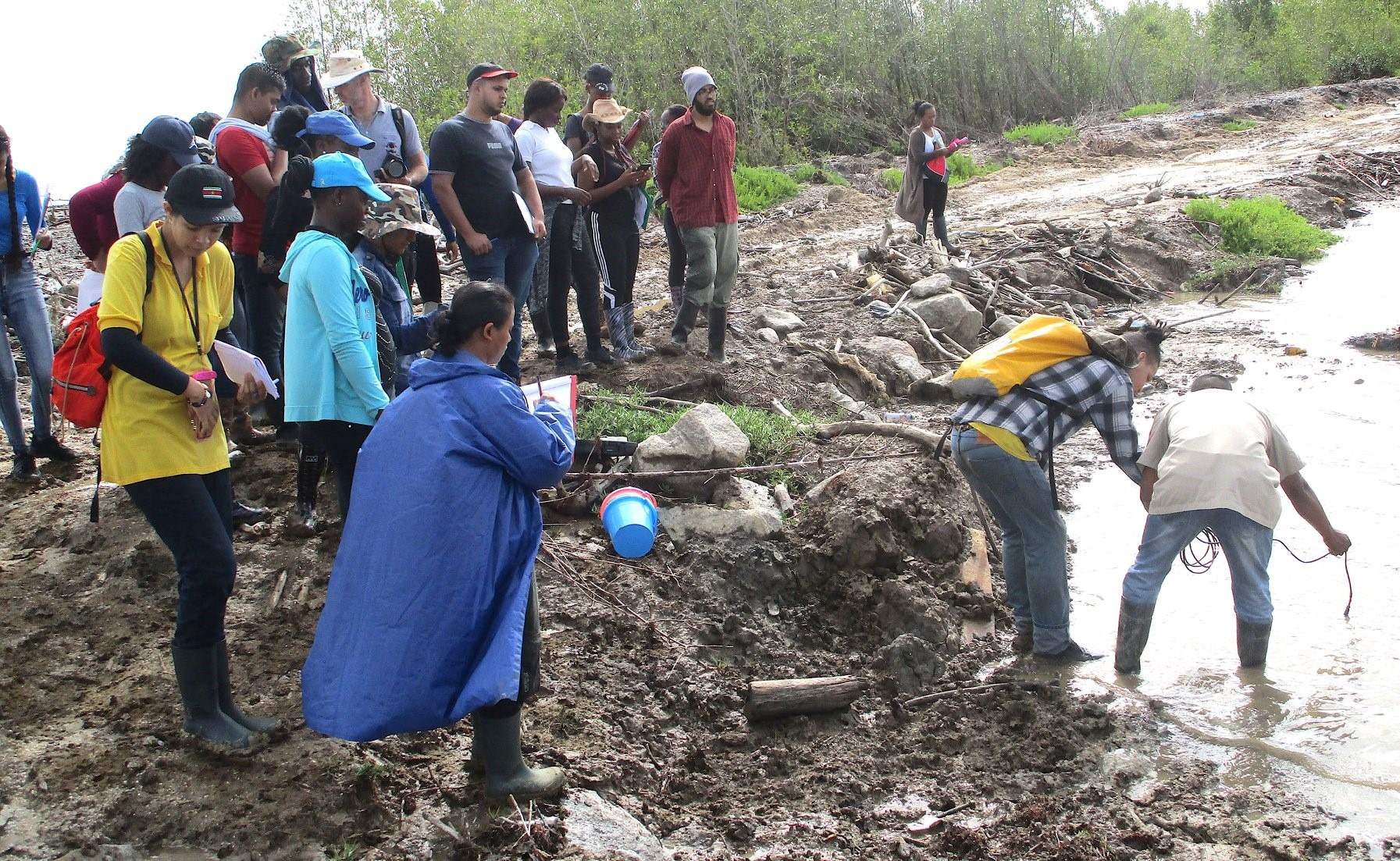Teaching the future generations of Suriname the value of our world’s mangrove forests
In 2019 Mangrove Action Project recently shared their ‘Marvelous Mangroves’ (MM) curriculum with the Anton de Kom University students in the town of Coronie on the coast of Suriname. The workshop, specifically designed around the region, covered a variety of topic areas through a series of science-based, hands-on explorations and activities.

 Led by Mangrove Action Project’s Education Director, Martin Keeley, the workshop further spread the values and benefits of mangroves after MM was first introduced to teachers and students in Coronie in 2016. The program has successfully been growing in the communities of Nickerie, Commenwije, Coronie. and Galibi. Representatives from organizations ranging from eco-tour guides from the United Tour Guides of Suriname (UTGS) to government Game Wardens and trainee teachers plus several schools have also since participated in the program. The workshop was co-sponsored by MAP, WWF, and SORTS, and used the MM in Suriname teachers’ resource guide as a basis for its information and activities.
Led by Mangrove Action Project’s Education Director, Martin Keeley, the workshop further spread the values and benefits of mangroves after MM was first introduced to teachers and students in Coronie in 2016. The program has successfully been growing in the communities of Nickerie, Commenwije, Coronie. and Galibi. Representatives from organizations ranging from eco-tour guides from the United Tour Guides of Suriname (UTGS) to government Game Wardens and trainee teachers plus several schools have also since participated in the program. The workshop was co-sponsored by MAP, WWF, and SORTS, and used the MM in Suriname teachers’ resource guide as a basis for its information and activities.
The workshop, specifically designed around the region, covered a variety of topic areas through a series of science-based, hands-on explorations and activities. These included the properties of water, birds, their feathers and functions, the structure of mangroves which enables them to adapt to various levels of salinity, mangrove ecosystem biodiversity, water quality testing and the microscopic study and analysis of detritus and mangrove water.

“This was an exciting group of students,” says Martin Keeley. “They showed both curiosity and a true desire to learn and understand the functions of mangrove ecosystems and their related biodiversity. Theirs was an intellectual approach which was stimulated by the different disciplines involved,” he added. “I would like to see much more of this inter-relationship approach to both learning and education at a university level. We function on many different levels as individuals and it makes more sense that we are aware of and understand each of these levels at the same time.”
Comments from the students were very positive – one Environmental Science student said: “With the information gained, I will try to contribute to the protection and rehabilitation of mangrove forests. The theory, presentation and the interaction was great.”
The workshop included a field trip on the third day explored mangrove ecosystems on the coast near Coronie and included reviewing the ecological changes to mangrove habitat caused by diking.
Water quality testing was led by MAP’s restoration specialist Dominic Wodehouse who supervised a variety of techniques ranging from soil salinity testing to pH content and water temperatures. Students, most of whom were in their early 20s, also toured the Mangrove Education Centre in Coronie where much of what they had learned was reinforced with everything from active models to a mangrove diorama, colourful posters and information booklets.
There is also an opportunity to carry on conversations and discussions on the multi-lingual MM website which reiterates mangrove workshop learning through a series of skill testing questions and explorations.
Find out more about the Marvelous Mangroves curriculum here.